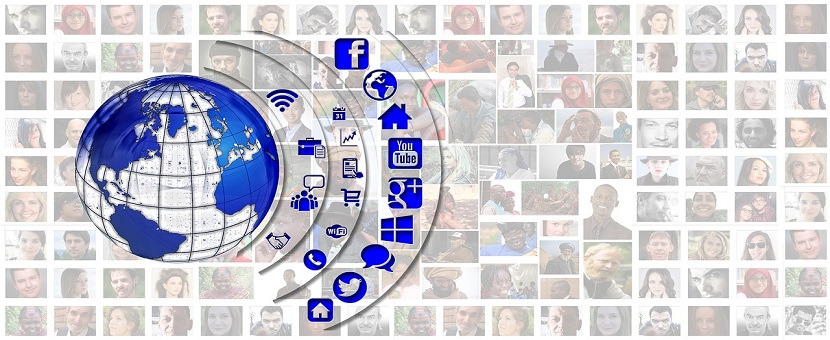The history of social media may date back to period before the beginning of the 21st century, depending on how the definition is stretched. But the social media as we know it today began in the early years of the 21st century and has witnessed massive growth and development over the years till date.
Traditional Media
The media generally represent means of disseminating information. Traditional media are television, radio, newspaper, etc which have been a reliable source of information over time. The information distributed through these traditional media channels cut across virtually every works of life. Media professionals and journalists who run the traditional media are highly trained with the core principles of journalism which is built on truth. Highly sophisticated and independent press is one of the hallmarks of developed countries. Press influence has huge impact not only on the socio-political space but also economically. Therefore, given the relevance of the press, the freedom of the press has become one of the core pillars of a democratic society.
Advent of Social Media
The advent of social media primarily gave the people the platform and ease to network and interact socially. Hence, the name, social media.
Social media has been defined as:
A dynamic online medium that has changed the way we work similar to traditional media, social media offers opportunity to collect and share news, communicate with audiences and advocate for change. However, unlike traditional media, social media allows for this to happen on the Web in real-time through highly interactive global or regional social networks.
There are different kinds of social media platforms with their distinctive features, use and relevance. For example, we have Facebook, LinkedIn, Google+, etc (social networking); Twitter, Tumblr, etc (microblogging); Instagram, Snapchat, Pinterest, etc (photo sharing); and YouTube, Facebook Live, Periscope, Vimeo, etc (video sharing).
One of the most interesting outcomes of these social media platforms is that not only have the people found these platforms as a powerful tool of social engagement, they have also discovered that it is a global market place for both local and international trading and investment. Another outstanding outcome is that even the owners of traditional media platforms have also keyed into the system to maintain their relevance in the society.
Social media have given birth to new career path and professional opportunities to those who have become digital marketers and social media influencers. Having realized the efficacy and efficiency of social media, a lot of businesses engage the services of digital marketers and social media influencers to sell their brand. Politicians are not left out, as they utilize the system to canvass for votes and sell their candidates to the electorates. Information can travel like forest fire. This is what is meant, in the industry language, as going viral. Both good and bad information can go viral once the cyberspace is “infected” by the information.
Citizen Journalism and Social Media
In Nigeria, the citizens have found a remarkable use for social media. Aside the viral influence of followership on which the social media is built, this innovation has become a tool of forcing some level of social and political change. Bad or unfavourable policies of the Government and its agencies are attacked by the people who take advantage of their wide network and rapid disseminating power of the social media. For instance, through social media, we have seen the Government make a u-turn on certain decisions like the earlier bid to regulate the social media through a Social Media Bill. The Bill was eventually caught by the web of the hash tag, #NoToSocialMediaBill. Most recently, we saw how the #EndSARS protest (online and offline) forced discussions and an urgent reform of the Nigeria Police and a move to end police brutality. This is amidst the incredible heat the protest has generated and the unfortunate role played by the Government.
According to Usman Jimada,
The new social media has also given birth to the concept of Citizen Journalism which is defined simply as a citizen who uses mass audience reaching tools such as the Internet and mobile phone technology to spread information and receive feedback thus creating a platform for deliberations of sorts… Citizen journalism has contributed a lot by encouraging citizen participation in a manner that gives them the power to hold government accountable. They wield powers that make them a whistleblower and opens up a degree of anonymity on the Internet. They are able to evade being identified from retributive justice by dictators. They also make available channels that tell the untold stories that otherwise won’t make the traditional media, hence giving a voice to the voiceless and making deliberations on issues that concerns citizens more representative.
For instance, while the Nigerian Television Authority (NTA) and some other TV stations were preoccupied with other matters most Nigerians have considered irrelevant at the time, some peaceful #EndSARS protesters were being shot at the Lekki Toll Gate on 20 October 2020. It was the life videos being transmitted via social media – though their reliability has spurred debates in certain quarters – that created the much needed awareness that exposed what many suspect are top-level conspiracies and brutality against the people.
Expectedly, the Nigerian Government at all levels are clearly uncomfortable with the magnitude of influence wielded by the social media. Many of our leaders are calling for a serious regulation of the space. They do not precisely champion this cause in good faith only. Their intentions are equally coloured by bad faith. This is without prejudice to the reason advanced which is to combat fake news and hate speech. But even the traditional media also have the potentials to disseminate false information, and this is being contained.
The people, mostly youths, have found the social media as the most effective means of enjoying their fundamental freedom of expression. The Constitution of the Federal Republic of Nigeria 1999 (as amended) guarantees the Right to Freedom of Expression and the Press. Section 39(1) provides:
Every person shall be entitled to freedom of expression including freedom to hold opinions and to receive and impart ideas and information without interference.
It will be preposterous to attempt to gag social media. The present state of our laws is sufficient to deal with anyone who unjustly defames the character of another or who disseminates false Information. See Sections 24 and 26 of the Cyber Crime (Prohibition, Prevention, Etc) Act, 2015 which prohibits sending of grossly offensive messages and false information. There are also online tools that enable fact check and verification of the authenticity of information. With proper orientation, people are being educated on how to carefully process information and not to be quick in disseminating information from unverified sources.
In essence, what the leaders should worry more about is good governance and how to genuinely sanitize the social media cum Internet space by promptly feeding the people with the right information.
The social media has become a watchdog. In fact, it has become the 4th arm of government which guarantees greater checks and balances.
Conclusion
Prior to the advent of social media in Nigeria, people lived on morsels of truth in critical times. We understand the downsides occasioned by fake news, but the beauty of social media can never be denied. Some of us who truly know the value are working to encourage the preservation of the space to remain our eyes in the sky and our voice in the wilderness.














